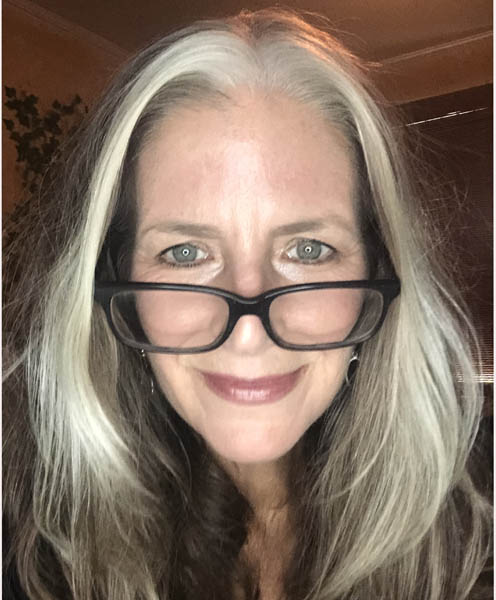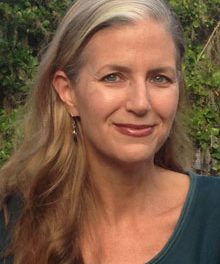My daughter, a rising college junior, calls me every day from Clemson. Sometimes more than once. We often chat in the mornings, when I’m out power-walking through Pigeon Point and she’s on her way to class.
I sometimes wonder if it’s okay that we talk so much. Is it thwarting her independence? What about mine? I sure didn’t talk to my mom this much when I was in college. Of course, every call back then required a walk down the hall, a quarter for the pay phone, and a willingness to have the whole dorm listening in.
(Praise thee, O Mighty iPhone. All hail, Air Pods.)
Amelia and I talk about all sorts of things. Stuff going on here in Beaufort. A stupid meme we both saw on Facebook. The final season of ‘Ozark.’ Her upcoming Econ exam or the paper she’s working on for her Populism class.
My daughter is a Poli Sci major and a Russian Studies minor. It’s an interesting time to be either, but being both is . . . well, let’s just say she’s not bored at school.
And I love that! I love it when she calls to tell me about a fascinating lecture she just heard about Adam Smith’s “invisible hand,” or a panel discussion she attended about the war in Ukraine. The kid’s mind is exploding, and that’ll make a mama’s heart swell.
I’m also learning a lot from these chats. As an English major back in the Paleolithic era, I didn’t take many political science classes, and I studied virtually nothing about Russia.
Back in February, the day after Russia invaded Ukraine, Amelia’s Russian language professor – whom she adores – came late to class, clearly flustered. Hailing from a small town near Siberia, this formidable scholar has been in the US for decades and is no fan of Vladimir Putin or his war. Instead of conjugating verbs that morning, her students watched a video of Putin’s speech, while their professor stopped it periodically to translate and offer commentary.
My small-town southern daughter shared all this with me over the phone that morning, and, again, I could almost feel her brain expanding in real time. Who says you can’t get a world-class education while paying in-state tuition?
The other day, while I was out for my walk, Amelia called and asked, “Mom, did you hear about Roe v. Wade?”
It was the morning after the infamous Supreme Court leak, and of course I had. Am I not, after all, the news junkie who rises at 5 a.m. each day to indulge her reading habit for 3-4 hours before Real Life starts?
When Amelia called during my walk, I was listening to a podcast about the leak – following the aforementioned 3-4 hours of reading – so I should have been thoroughly prepped for the conversation, with wisdom a ‘plenty to impart.
But I wasn’t. And I found myself tripping over my tongue.
Here was my adult daughter – my savvy, engaged, Russian-speaking offspring – hoping to have an intelligent exchange with her mother about a social issue of great import – an issue on which I’ve thought long and hard for decades – and the best I could muster on the spot was, “It’s complicated.”
Clearly, that wasn’t gonna cut it, so I tried again.
I told her about my grad school days in the late ‘80s, when I was only a couple of years older than she is now. How passionate I’d been in my pro-choice convictions. I remember sporting a “Students for Choice” button on my backpack and attending some meetings of that organization. Maybe even a rally or two.
(I think I heard Amelia giggle at that point. The mom she knows is not the activist type.)
Back then, I told her, “pro-choice” seemed like the only ethical position a modern, educated person might hold. To my 22-year-old, thoroughly-inexperienced-but-highly-confident self, there was a simple binary of right vs. wrong, and my position was unequivocally right.
Almost four decades later – having thought deeply about the issue, raised a daughter, and lived a life – I still place myself in the “pro-choice” camp. But not because the issue is simple, as I once believed. No, I now consider myself pro-choice because the issue is so damn complicated.
I told my daughter that plenty of modern, educated people disagree with me, and that I respect them and even sympathize with their arguments. Much like myself, they did not come to their position casually. I encouraged her to read widely, listen generously, and think hard about her own position. Only then will it be one worth fighting for.
And please, God, let the “fighting” over this issue be done with words, not fists or guns.
I read an editorial in the New York Times this morning, headlined “America is Not Ready for the End of Roe v. Wade.” No matter where you stand on abortion, I think we can all agree that the Supreme Court leak has come at a particularly bad time, another grenade tossed into a country already blowing itself apart.
The editorial acknowledged the weakness of Roe as law – I’ve yet to find a constitutional scholar who doesn’t – but it also argued that giving abortion back to the states would create a confusing mishmash of laws, leaving American women unequally protected – and our country even more dangerously divided – and that “a national standard is necessary.”
“That national standard, at least for a few more weeks, is Roe v. Wade as modified by Planned Parenthood v. Casey,” wrote the NYT editors. “These two rulings are not perfect, but for all their flaws, they have managed to strike a delicate balance that reflects the public’s complex position on a morally fraught issue. The majority of Americans do not want these cases overturned, and an overwhelming majority say that abortion should not be banned outright.”
The editorial concluded, “If you thought Roe v. Wade itself led to discord and division, just wait until it’s gone.”
This is my fear, too. Can’t wait to discuss it with my daughter and see what she thinks.







